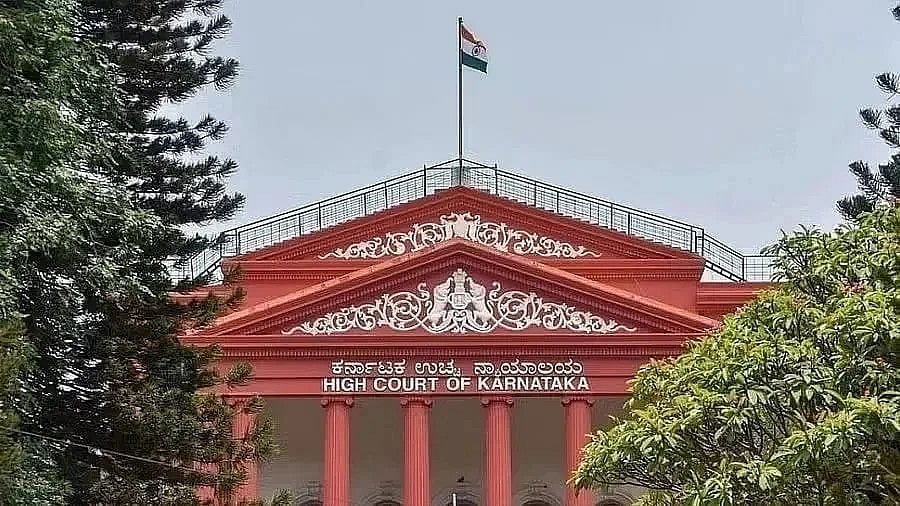
Karnataka High Court
Credit: DH File Photo
Bengaluru: The Karnataka High Court on Friday quashed the ex-parte ad-interim mandatory injunction order passed by a Bengaluru civil court to delete stories about the crime registered in Dharmasthala police station alleging mass burials.
The high court order is in so far as the petitioner namely ‘Kudla Rampage’, a digital media platform from Mangaluru.
On July 18, an Additional City Civil and Sessions court had passed the order against 332 defendants, including individuals and media houses, in the suit filed by Harshendra Kumar D, secretary of the institutions run by Shri Manjunathaswamy Temple, Dharmasthala. The civil court had directed removal and de-indexing of over 8,842 web links.
Partly allowing the petition filed by ‘Kudla Rampage’, Justice M Nagaprasanna directed the civil court to consider the interlocutory applications afresh, bearing in mind the observations made in the order and dispose of the same in terms of the Civil Procedure Code (CPC).
Justice Nagaprasanna observed that the civil court’s order conspicuously lacked the foundational reason required for grant of such extraordinary relief.
“The order has now cast its net so wide that it threatens to ensnare any voice against the plaintiff, the family, or the place. This could not have been issued bereft of reasons. The order speaks of the prohibition of defamatory statements. Not one word of what kinds of statements are defamatory for the court to pass the afore-quoted order is found in the order. There is no semblance of reason for the ultimate relief that is granted,” the court said.
The petitioner had contended that passing a drastic gag order on the media of taking down URLs would be a virtual death sentence on the media even before hearing the petitioner or any other person. The petitioner also challenged the ‘John Doe order’, which is in Indian context 'Ashok Kumar' order, meaning the order extending even to unidentified persons. Justice Nagaprasanna said that a ‘John Doe order’, a placeholder name, traditionally used in the United States legal system, could not have been issued bereft of reasons.
The court further said, “It is made clear that this court has not expressed any opinion on the merits of the civil suit, the criminal proceedings, or the veracity of the allegations and the counter-allegations. All contentions, except the one considered in the course of the order between the parties, shall remain open. It is needless to observe that the petitioner and other parties shall extend their full cooperation to the concerned court in the passing of necessary orders, in the light of the observations made in the course of the order.”